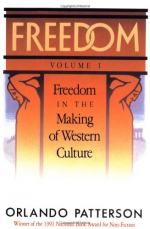
|
| Name: _________________________ | Period: ___________________ |
This quiz consists of 5 multiple choice and 5 short answer questions through Chapter 4.
Multiple Choice Questions
1. The concern with personal freedom basically results from whom?
(a) Female landowners of the period.
(b) Male landowners of the period.
(c) Male slaves of the period.
(d) Female slaves of the period.
2. The financial welfare of the slaveholder is now becoming dependent on what?
(a) The intelligence of the slave.
(b) The physical attributes of the slave.
(c) The productivity of the slave.
(d) The social class of the slave.
3. Eventually, the differing views of freedom lead to what?
(a) Peace.
(b) Social conflict and upheaval.
(c) Compromise.
(d) Understanding.
4. With _____________ freedom, the individual is not dominated by another human.
(a) Formal.
(b) Sovereignal.
(c) Social.
(d) Personal.
5. What is the third revolution, which involves the emergence of democracy?
(a) An economic revolution.
(b) A social revolution.
(c) A political revolution.
(d) A philosophical revolution.
Short Answer Questions
1. On what is the nineteenth century Imbangala people of Africa's society based?
2. Freedom is relative in that the more freedom one individual has, the ______ freedom another has.
3. To what can the development of freedom as a social value be traced?
4. _________________ freedom more or less defines the slave-slave master relationship.
5. What are palatine centralism, decentralized tribalism, rudimentary state formation and aristocratic resurgence?
|
This section contains 241 words (approx. 1 page at 300 words per page) |

|




